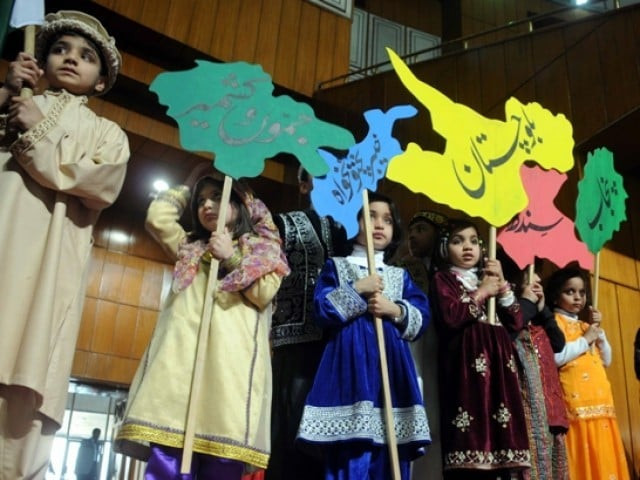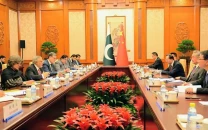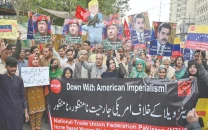Stepping up: PML-N calls for four new provinces
Submits resolution to the speaker’s office; Chaudhry Nisar says they were ignored.

Outflanked by the ruling Pakistan Peoples Party in the house on Thursday, the Pakistan Muslim League-Nawaz (PML-N) submitted a resolution of its own regarding the formation of new provinces – calling for not one, but four, new federating units.
Interestingly, in addition to the proposal of a “South Punjab” province, as put forward by the ruling coalition earlier in the day, the PML-N also put forward the proposal of a “Bahawalpur” province. “Bahawalpur” and “South Punjab” have generally been used as substitutes for each other – with the PML-N favouring the former and the PPP favouring the latter, in the form of a ‘Seraiki’ province.
But the PML-N’s resolution calls for the formation of both.
The resolution submitted to the office of the Speaker National Assembly on Thursday calls for the formation of Bahawalpur, Federally Administered Tribal areas (Fata), South Punjab and Hazara provinces.
The move came hours after the PPP moved, and managed to pass, two resolutions in parliament – one calling for formation of a “South Punjab” province and another one reposing confidence in Prime Minister Yousaf Raza Gilani.
“Recognising the aspirations of the people of South Punjab, the former state of Bahawalpur, Hazara and the Federally Administered Tribal Areas, this house resolves that four new provinces should be created to further empower the people and facilitate administration and economic development of these areas,” stated a two-page draft of the resolution submitted by the PML-N.
Unlike the PPP resolution, which called upon the provincial government to initiate the amending of the Constitution for creation of a new province, PML-N’s draft puts the responsibility on the federal government.
Opposition leader complains
Leader of the Opposition Chaudhry Nisar Ali Khan complained that the Speaker had taken up “such an important matter” without issuing prior notice to the PML-N.
“It’s against parliamentary norms. The rules have been violated by the Speaker,” Khan said. “We are not against the creation of new provinces but wanted to give our own input to parliament,” he added.
Khan suggested that the government form a commission to take up such issues.
It is our old demand that provinces should be created, but with consensus, he added.
He claimed there was “too much noise” in the National Assembly on Thursday and questioned how the Speaker determined who had voted in favour of the resolution.
“[Creation of a new province in Punjab] is a serious matter … we will not let the government take unilateral decisions,” he added.
Published in The Express Tribune, May 4th, 2012.



















COMMENTS
Comments are moderated and generally will be posted if they are on-topic and not abusive.
For more information, please see our Comments FAQ